Gut microbial imbalance and neurodegenerative proteinopathies: from molecular mechanisms to prospects of clinical applications
The pathogenic basis behind some of the most prevalent neurodegenerative diseases in advanced societies, known as proteinopathies, deals with alterations in protein homeostasis. Despite the broad di
[...] Read more.
The pathogenic basis behind some of the most prevalent neurodegenerative diseases in advanced societies, known as proteinopathies, deals with alterations in protein homeostasis. Despite the broad diversity of clinical symptoms, they share a remarkably common feature that is the serious neuronal loss in several disease-specific brain regions due to the presence of toxic aggregations of misfolded proteins. So far, research efforts have been insufficient to decipher the exact molecular mechanisms that trigger the conformational change from a functional healthy protein to its pathological version. This is a sine qua non condition to progress in developing new approaches and treatments for these diseases for which there is no cure. Currently, it is well accepted that perturbations in gut microbiota composition negatively impact a wide range of brain processes via the gut-brain axis which increases host susceptibility to neurodegenerative disorders. In this context, modulate the microbial ecosystem colonizing the gastrointestinal tract may be a promising therapeutic approach in the management of proteinopathies. This review aims to provide an updated view of the role that gut microbiota poses in the pathogenesis of Parkinson’s disease, Alzheimer’s disease and Huntington’s disease, the most common neurodegenerative proteinopathies, and of the possibility of translating this knowledge into effective and safe clinical microbiota-based interventions, especially those designed to afford neuroprotection.
Paula Alonso-García ... Eva Martínez-Pinilla
View:3140
Download:102
Times Cited: 0
The pathogenic basis behind some of the most prevalent neurodegenerative diseases in advanced societies, known as proteinopathies, deals with alterations in protein homeostasis. Despite the broad diversity of clinical symptoms, they share a remarkably common feature that is the serious neuronal loss in several disease-specific brain regions due to the presence of toxic aggregations of misfolded proteins. So far, research efforts have been insufficient to decipher the exact molecular mechanisms that trigger the conformational change from a functional healthy protein to its pathological version. This is a sine qua non condition to progress in developing new approaches and treatments for these diseases for which there is no cure. Currently, it is well accepted that perturbations in gut microbiota composition negatively impact a wide range of brain processes via the gut-brain axis which increases host susceptibility to neurodegenerative disorders. In this context, modulate the microbial ecosystem colonizing the gastrointestinal tract may be a promising therapeutic approach in the management of proteinopathies. This review aims to provide an updated view of the role that gut microbiota poses in the pathogenesis of Parkinson’s disease, Alzheimer’s disease and Huntington’s disease, the most common neurodegenerative proteinopathies, and of the possibility of translating this knowledge into effective and safe clinical microbiota-based interventions, especially those designed to afford neuroprotection.
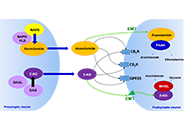 Therapeutic potential of the cannabinoid receptor 2 in neuropsychiatryOpen AccessReviewSince the identification and cloning of the cannabinoid receptor 2 (CB2R), several studies focused on the characterization of its physiological and pathological role. Initially, CB2R was considered [...] Read more.María S. García-Gutiérrez ... Jorge ManzanaresPublished: August 05, 2021 Explor Neuroprot Ther. 2021;1:55–71
Therapeutic potential of the cannabinoid receptor 2 in neuropsychiatryOpen AccessReviewSince the identification and cloning of the cannabinoid receptor 2 (CB2R), several studies focused on the characterization of its physiological and pathological role. Initially, CB2R was considered [...] Read more.María S. García-Gutiérrez ... Jorge ManzanaresPublished: August 05, 2021 Explor Neuroprot Ther. 2021;1:55–71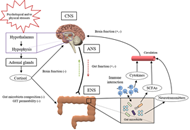 Gut microbial imbalance and neurodegenerative proteinopathies: from molecular mechanisms to prospects of clinical applicationsOpen AccessReviewThe pathogenic basis behind some of the most prevalent neurodegenerative diseases in advanced societies, known as proteinopathies, deals with alterations in protein homeostasis. Despite the broad di [...] Read more.Paula Alonso-García ... Eva Martínez-PinillaPublished: August 05, 2021 Explor Neuroprot Ther. 2021;1:33–54
Gut microbial imbalance and neurodegenerative proteinopathies: from molecular mechanisms to prospects of clinical applicationsOpen AccessReviewThe pathogenic basis behind some of the most prevalent neurodegenerative diseases in advanced societies, known as proteinopathies, deals with alterations in protein homeostasis. Despite the broad di [...] Read more.Paula Alonso-García ... Eva Martínez-PinillaPublished: August 05, 2021 Explor Neuroprot Ther. 2021;1:33–54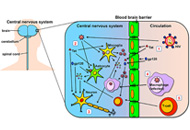 Neurological complications during HIV infectionOpen AccessReviewEarly in the course of infection, human immunodeficiency virus (HIV) is able to enter the central nervous system where it stablishes a permanent reservoir. Current antiretroviral therapies do not ef [...] Read more.Jose M. Martinez-NavioPublished: August 05, 2021 Explor Neuroprot Ther. 2021;1:19–32
Neurological complications during HIV infectionOpen AccessReviewEarly in the course of infection, human immunodeficiency virus (HIV) is able to enter the central nervous system where it stablishes a permanent reservoir. Current antiretroviral therapies do not ef [...] Read more.Jose M. Martinez-NavioPublished: August 05, 2021 Explor Neuroprot Ther. 2021;1:19–32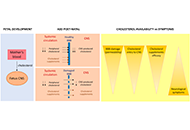 Cholesterol in autism spectrum disordersOpen AccessReviewThe autism spectrum disorder (ASD) comprises a series of neurological diseases that share serious alterations of the development of the central nervous system. The degree of disability may vary so t [...] Read more.Rafael Franco ... Irene Reyes-ResinaPublished: August 05, 2021 Explor Neuroprot Ther. 2021;1:10–18
Cholesterol in autism spectrum disordersOpen AccessReviewThe autism spectrum disorder (ASD) comprises a series of neurological diseases that share serious alterations of the development of the central nervous system. The degree of disability may vary so t [...] Read more.Rafael Franco ... Irene Reyes-ResinaPublished: August 05, 2021 Explor Neuroprot Ther. 2021;1:10–18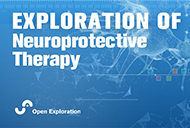 P2X7 receptor involvement in COVID-19 diseaseOpen AccessLetter to the EditorPeter IllesPublished: August 05, 2021 Explor Neuroprot Ther. 2021;1:7–9
P2X7 receptor involvement in COVID-19 diseaseOpen AccessLetter to the EditorPeter IllesPublished: August 05, 2021 Explor Neuroprot Ther. 2021;1:7–9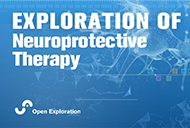 Science plus technology to address challenges in determining the efficacy of neuroprotective/neurorestorative therapiesOpen AccessEditorialRafael FrancoPublished: August 05, 2021 Explor Neuroprot Ther. 2021;1:1–6
Science plus technology to address challenges in determining the efficacy of neuroprotective/neurorestorative therapiesOpen AccessEditorialRafael FrancoPublished: August 05, 2021 Explor Neuroprot Ther. 2021;1:1–6